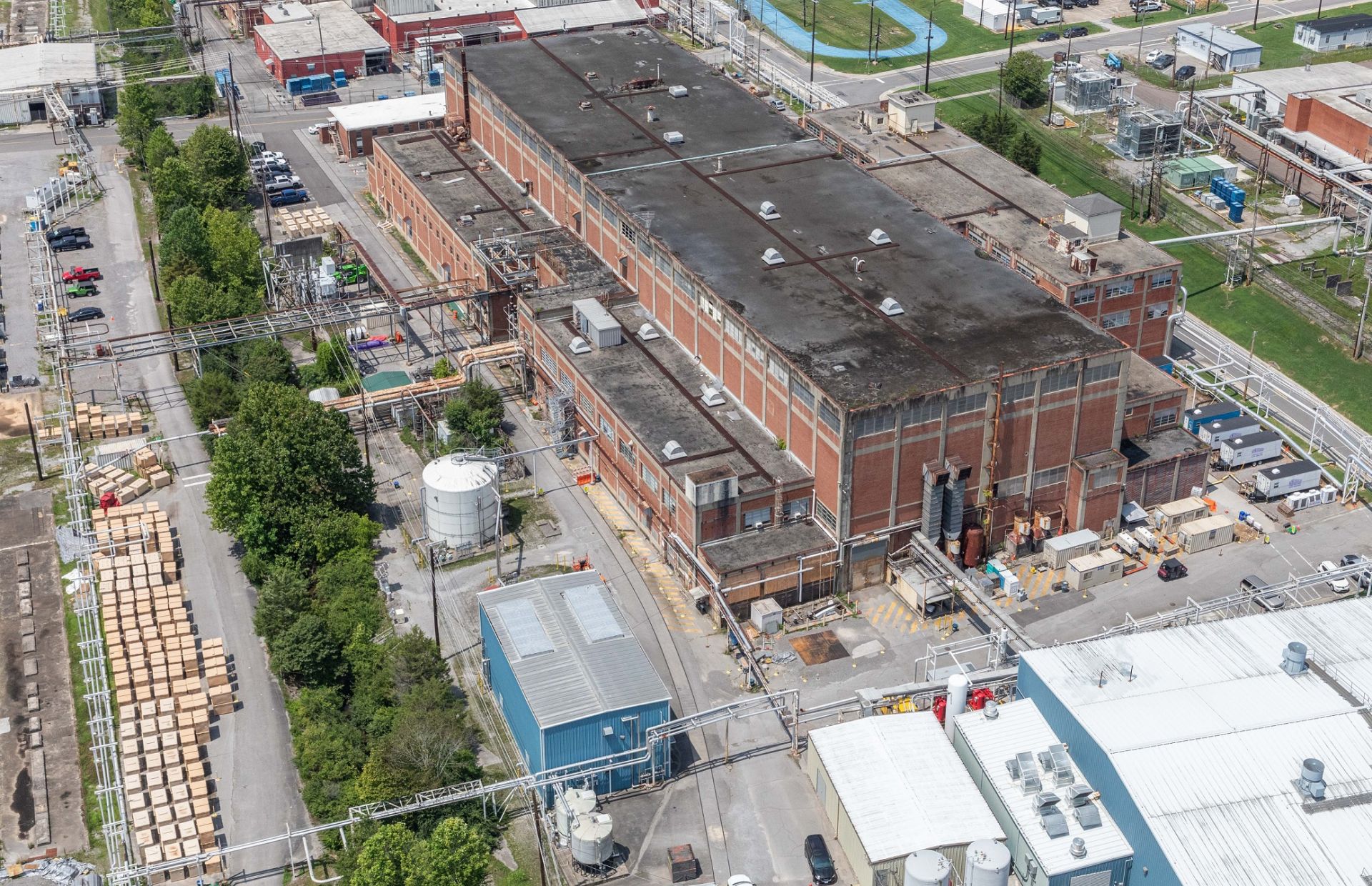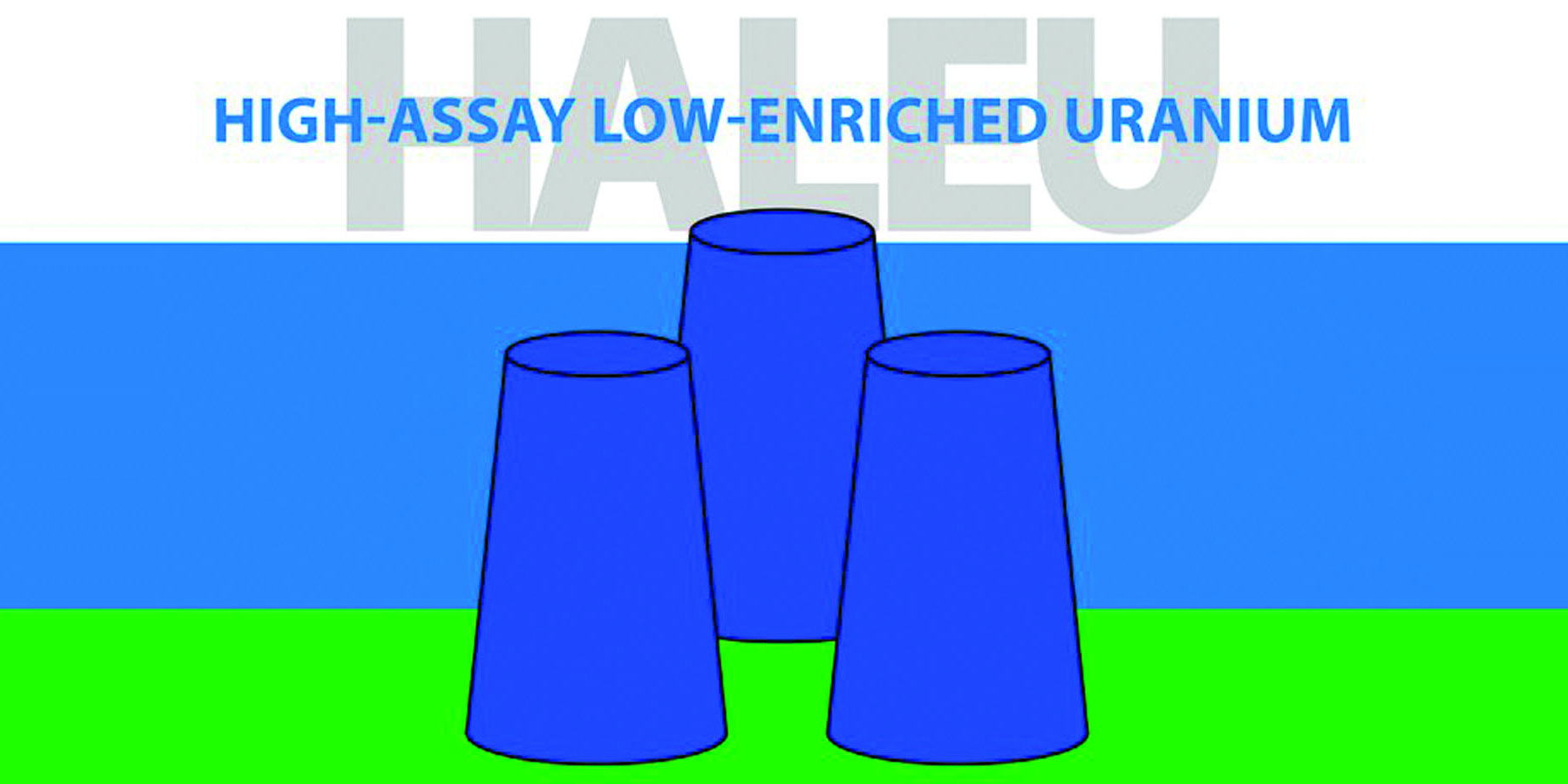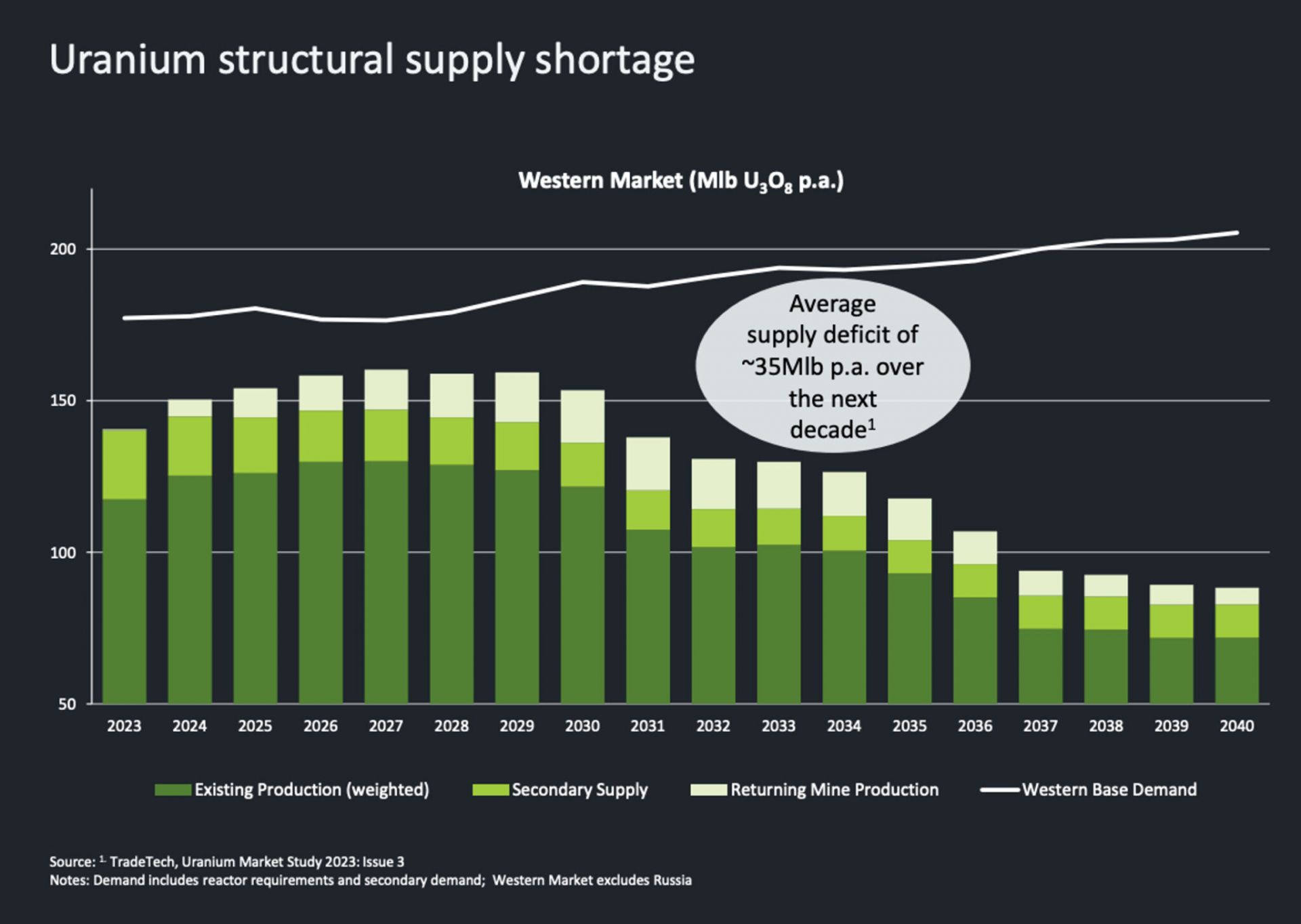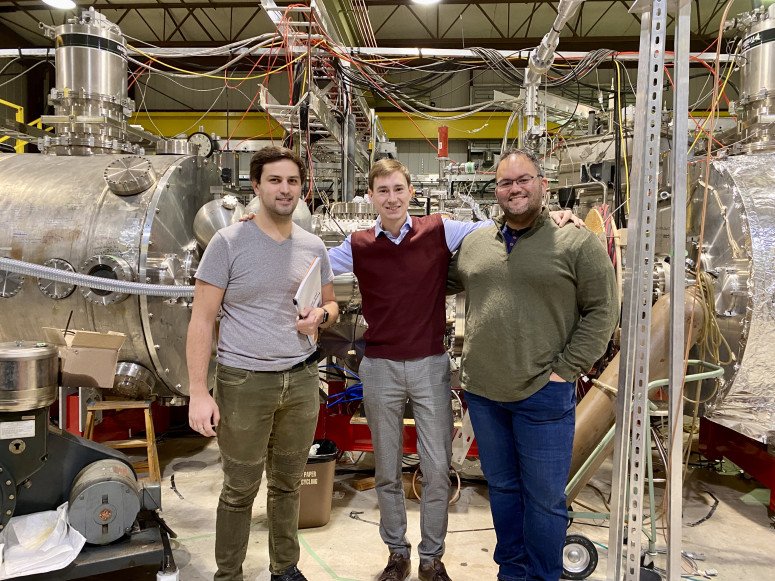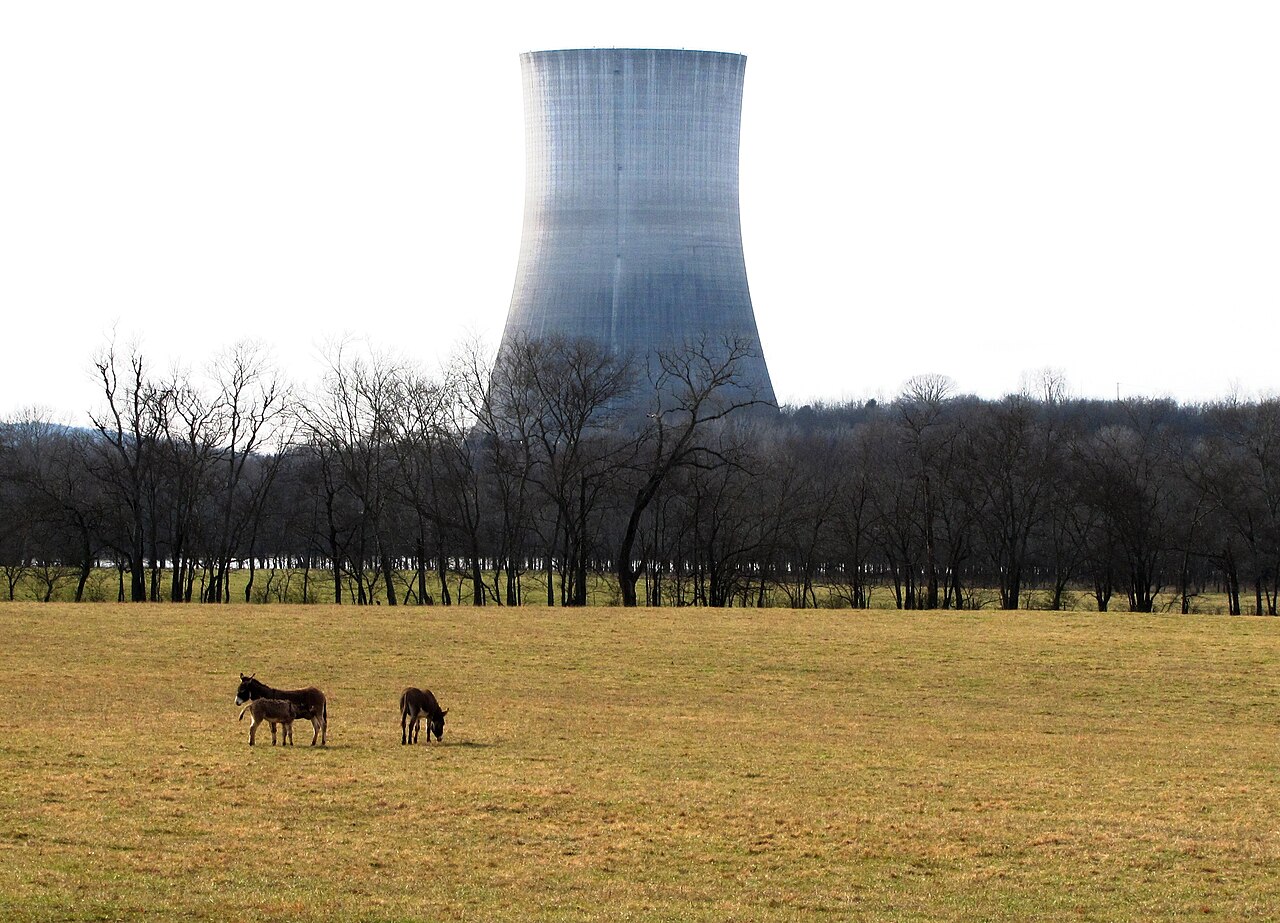Oak Ridge crews will begin demolition of the 325,000-sqaure-foot Alpha-2 facility this year, marking the first teardown of a former uranium enrichment facility at Y-12. (Photo: DOE)
The Department of Energy announced that its Oak Ridge Office of Environmental Management (OREM) is moving ahead with a slate of projects this year that will alter the Tennessee site’s skyline, remove inventories of nuclear waste, and complete a major phase of cleanup.
Bavarian minister of state Florian Herrmann (left) with ITM CEO Steffen Schuster (right) and others at a mock-up Lu-177 hot cell. (Photo: ITM)
Radiopharmaceutical biotech company ITM Isotope Technologies Munich announced it has received regulatory approval to begin production of the medical radioisotope lutetium-177 at the company’s NOVA facility in Neufahrn, near Munich, Germany.
The HL-2M tokamak reactor, developed by the CNNC’s Southwestern Institute of Physics. (Photo: CNNC)
The government of China has formed a new national industrial consortium focused on the development and advancement of nuclear fusion technology, news outlets have reported.
[Click to see full graphic] Western base demand (white line) for uranium will continue to outpace the combined existing production (dark green), secondary supply (middle green), and returning mine production (light green) through 2040, according to projections. (Image: Paladin Energy)
Investors continue to be bullish on uranium, according to a number of recent news reports. Stockhead recently trumpeted, “Uranium has started 2024 the same way it ended 2023—like a bull in a china shop. Spot prices are now agonizingly close to US$100/lb for the first time since 2008, with term pricing not far behind.” Similarly, Mining.com noted, “The spot price of uranium continues to rise, boosted by pledges to triple nuclear power by mid-century, supply hiccups from producers such as Cameco . . . , and the looming threat of a ban on Russian exports to the West.”
From left, engineer Jeremiah Kirch, postdoctoral researcher Mykola Ialovega, and assistant scientist Marcos Xavier Navarro-Gonzalez pose in front of the WHAM device at UW-Madison. (Photo: Mykola Ialovega)
A new type of cold spray coating, made from the metal tantalum and applied to the plasma-facing steel walls of fusion reactors, could lead to efficient, compact fusion reactors that are easy to repair and maintain, according to a study recently published in the journal Physica Scripta. The study was led by scientists and engineers at the University of Wisconsin–Madison and involved researchers from South Korea, France, and Germany.
A cooling tower at the canceled Hartsville nuclear power plant in Tennessee. (Photo: Brian Stansberry/WikiCommons)
Three people were arrested on January 3 when they paraglided onto the site of a canceled nuclear power plant in Hartsville, Tenn., according to Nashville news station WSMV.
Some of the participants at the NEA Workshop on Extended Storage and Transportation of Spent Fuel and Radioactive Waste from Current and Future Reactor Technologies. (Photo: NEA)
A recent event co-organized by the Nuclear Energy Agency, the Electric Power Research Institute, and Holtec International brought together about 100 international experts for a workshop on spent fuel and radioactive waste.
While interning at SRS, Texas Tech senior Jinju Philip spent time in the quality assurance program inside the Defense Waste Processing Facility. He now works part time in the Technical Student Program as a system engineer for the site’s tank closure effort. (Photo: SRMC)
The Department of Energy Office of Environmental Management’s liquid waste contractor at the Savannah River Site is giving nine college students the opportunity to jump-start their careers this year through a hybrid work program that allows them to finish their engineering or computer science studies while also interning at SRS.
